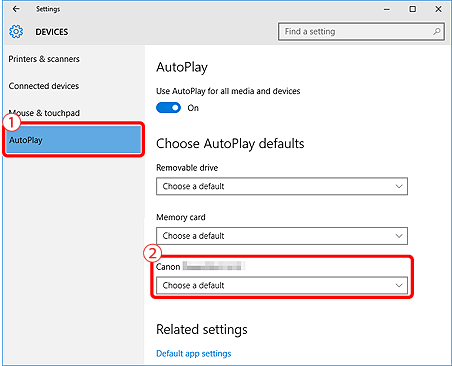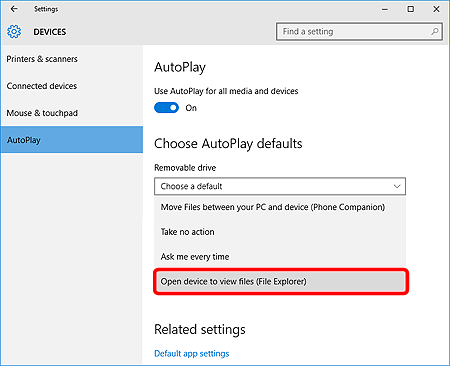Solution
You can connect the camera to a computer via a USB cable, and save images to a computer running Windows OS without installing any additional software applications. The procedures for connecting the camera to the computer running Windows OS with a USB cable (camera end: Mini-B), and saving images to the computer are explained below.
IMPORTANT
- Depending on the camera model, a USB cable may not be included with the camera.
- If you do not own a USB cable, please purchase one separately.
REFERENCE
The following two types of USB cables are available for compact digital cameras:
*For more information about the type of USB cable that can be used with your camera, please refer to the camera’s instruction manual.
- Camera end: Mini-B (IFC-400PCU)
- Camera end: Micro-B (IFC-600PCU)
Connect the Camera to the Computer
1. Connect the <DIGITAL> terminal of the camera to the computer's USB port using a USB cable (camera end: Mini-B).

<DIGITAL> terminal (Camera)

USB cable

USB port (Computer)
IMPORTANT
Example procedures are shown on the PowerShot A2600/PowerShot A2500. The position and shape of the operation buttons, screens displayed, and setting items may differ according to the model you use.
2. Press the power button to turn the camera on.
NOTE
- If an application for saving images, such as CameraWindow, starts, please close it.
- Depending on the camera model, once the connection between camera and computer is set, the camera will turn on automatically.
3. Click [File Explorer] on the taskbar appearing on the bottom of the screen.
4. When the following screen appears, select [This PC] from the menu items on the left side.
5. Select the camera connected to the PC (

), and then right-click on the icon. Next, select [Import pictures and videos] (

) from the screen displayed.
6. Click [Next] when the [Import Pictures and Videos] screen is displayed.
7. Click [Import] to begin image transfer.
NOTE
- [Select All] is set by default.
- To select images to import individually, remove the check from [Select All], and append desired images with a [
 ].
].
8. Image import (transfer) begins.
9. When image transfer is complete, a screen similar to the following one appears.
This completes the procedures for importing images.
Changing the Automatic Start-up Settings for Software Applications.
To prevent software applications from starting automatically, follow the procedures below to change the [AutoPlay] settings.
1. Click the [Start] button appearing at the bottom left of the screen (

), and then choose [Settings] (

).
2. Choose [Devices] from the screen displayed.
3. Select [AutoPlay] (

) from the options appearing on the left of the screen to display the AutoPlay setting screen, select the camera (

) connected to the computer and right-click the icon.
4. Make the settings.
- Choose [Open device to view files (File Explorer)].
This completes the procedure for changing the AutoPlay settings.
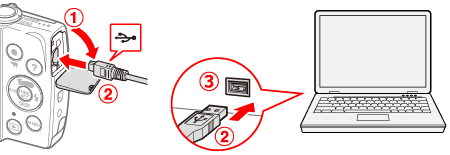
 <DIGITAL> terminal (Camera)
<DIGITAL> terminal (Camera) USB cable
USB cable USB port (Computer)
USB port (Computer)

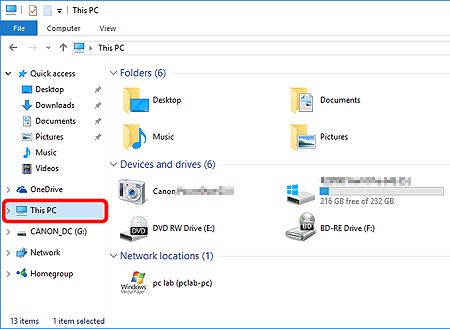
 ), and then right-click on the icon. Next, select [Import pictures and videos] (
), and then right-click on the icon. Next, select [Import pictures and videos] ( ) from the screen displayed.
) from the screen displayed.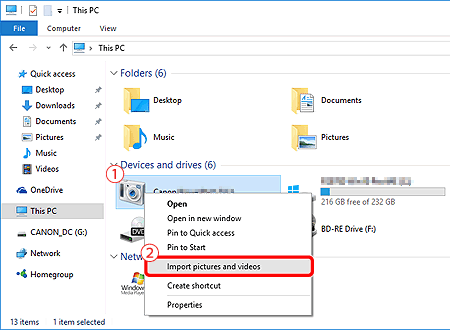
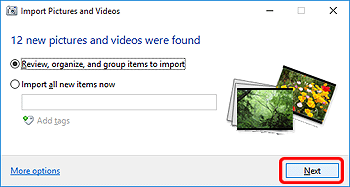
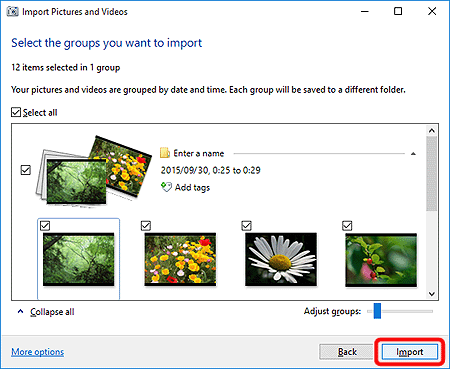
 ].
].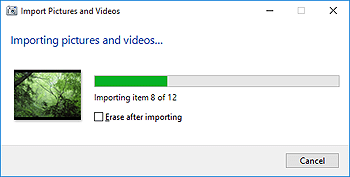
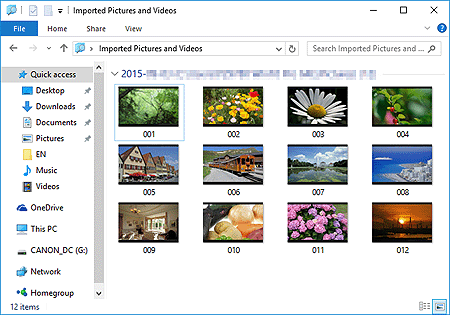
 ), and then choose [Settings] (
), and then choose [Settings] ( ).
).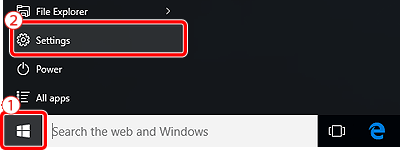
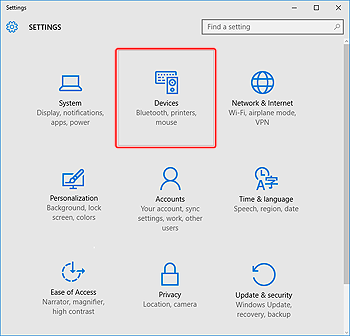
 ) from the options appearing on the left of the screen to display the AutoPlay setting screen, select the camera (
) from the options appearing on the left of the screen to display the AutoPlay setting screen, select the camera ( ) connected to the computer and right-click the icon.
) connected to the computer and right-click the icon.